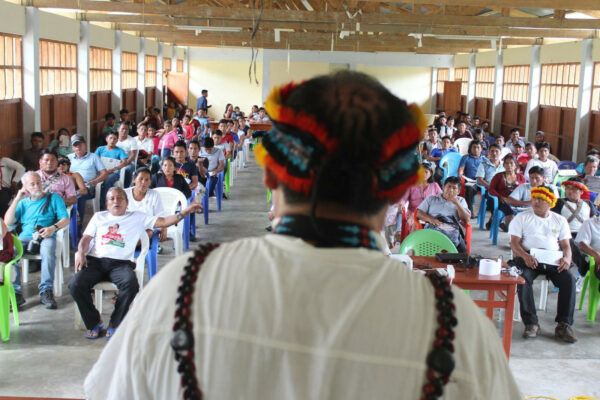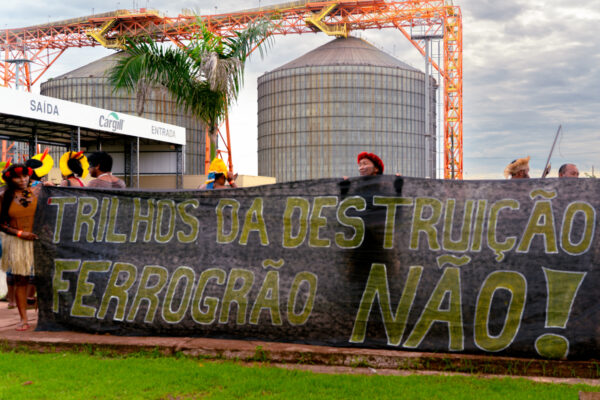Washington D.C. – The Inter-American Development Bank (IDB) and the World Bank’s private finance arm the International Finance Corporation (IFC) would be breaching their own social and environmental safeguards if they funded infrastructure associated with a controversial gas project in a remote, pristine part of the Peruvian Amazon, Amazon Watch warned today.
The environmental and indigenous rights group called on the banks to delay the approval process for $1.1 billion in loans to the consortia for the Camisea gas project, led by Texas-based Hunt Oil, as it unveiled a damning new report into compliance problems and major social and environmental impacts resulting from the Camisea gas project.
Titled “Holding the IDB and IFC to Account on Camisea II” and authored by an anthropologist expert in indigenous rights, the report, which Amazon Watch today handed over to the two banks, measured Camisea against applicable international standards and due diligence procedures and found:
• Indigenous communities have been intimidated into allowing gas drilling on their lands;
• Critical impact assessments and audits conducted by the IDB, which funded the first phase of Camisea, known as “Camisea I” and which went operational in August 2004, omitted basic ecological and human rights criteria;
• The cumulative impacts on vulnerable indigenous communities have been ignored and inadequately compensated;
• Past and existing operations failed to comply with IDB and IFC safeguards for indigenous rights, and have contravened other international standards on the rights of indigenous peoples;
• The World Bank must carry out a human rights and poverty risk assessment as part of its due diligence process for financing Camisea.
Now, Hunt Oil and its partners are seeking funding for the second phase of Camisea, known as “Camisea II”, which is already under construction and threatens to spread these impacts to a vast, new, inhabited area of the Peruvian Amazon.
Amazon Watch is demanding that the IDB and the IFC commit to meeting the standards stated in their various environmental, social and indigenous peoples policies. In particular, the IFC, which is considering funding a gas liquefaction plant on the Peruvian coast to allow Camisea’s gas to be exported by tanker, must follow its own environmental policy by considering the harmful impacts of Camisea’s upstream “associated facilities” as part of the loan due diligence process, the report concludes.
Those impacts include drilling in highly-biodiverse and ecologically-fragile areas of the Amazon rainforest, home to vulnerable indigenous communities. One of Camisea I’s current two drilling platforms is located inside a state reserve intended to protect some of the last indigenous peoples still living in isolation anywhere in the Amazon basin, with two more proposed for construction inside the reserve. Camisea II overlaps the titled lands of seven indigenous communities as well as territories used seasonally by other isolated groups.
The study concludes: “The rights violations and shortcomings in previous business activities that have already taken place under the Camisea II project do not fully conform to the safeguard standards of the IDB. Furthermore, one of the key lessons of the Camisea project is that retroactive due diligence and ex post facto mitigation measures are poor practice and questionable policy.”
Amazon Watch Executive Director Atossa Soltani said: “Camisea is a test case of the environmental and social policies of the Inter-American Development Bank and World Bank. The human rights and ecological impacts caused by Camisea, meticulously documented in this report, were predicted by us, and many others. If these banks finance Camisea II, then their safeguards are not worth the paper on which they are written.”













